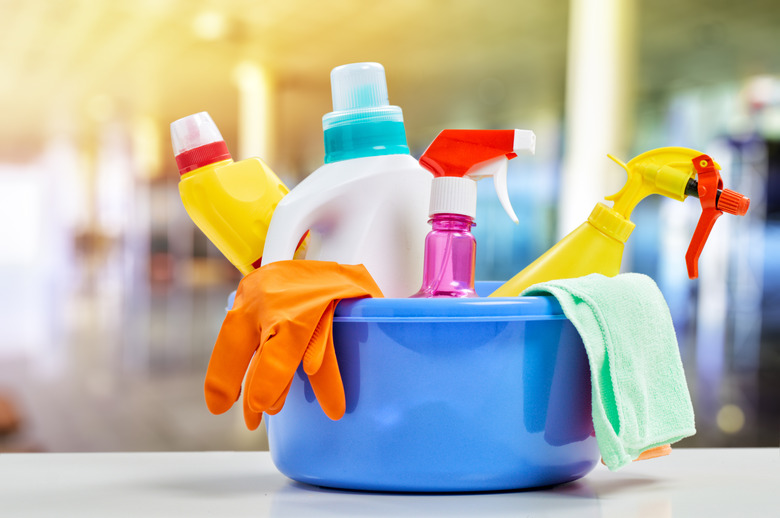Scented Cleaning Products: The New Smoking?
It's no secret that indoor air quality is a health concern; the Environmental Protection Agency notes that indoor air can actually be more polluted than outdoor air, even if you live in a large and industrialized city. Continued exposure to pollution, dust and other allergens can aggravate your lungs and airways, worsening asthma and even increasing your risk for cancer.
Clearly, it's important to keep your place clean to remove as much dust as you can. But there's a double-edge sword: many cleaning products are loaded with chemicals that can also harm your health, and manufacturers are not required by the Food and Drug Administration to prove that the ingredients in their products are safe. So when you're planning your spring cleaning, it's crucial to choose safe cleaning products to help keep your air clean.
The Health Impacts of Cleaning Products
The Health Impacts of Cleaning Products
It's easy to shrug off the effects of cleaning products; out of sight, out of mind, right? However, they can be significant. Research from the American Thoracic Society found that women who often clean in the home or the workplace face significant lung issues. The 20-year study, which was published in the "American Journal of Respiratory and Critical Care Medicine" in February 2018, found that frequent cleaners had a decrease in lung function that was comparable to the decline seen in smokers. Additional research has found that cleaning products can worsen asthma, providing further proof that these chemicals aren't good for your airways.
Chemicals to Watch out For
Chemicals to Watch out For
While you may not know how every cleaning product ingredient affects your health, and many are likely completely harmless, there are a few big hitters to avoid. Steer clear of products containing parabens and phthalates, which are often added to scented products to help the scent linger, such as that laundry detergent that keeps your bedding smelling fresh for a week. These compounds may affect hormone levels and can trigger asthma. Look out for triclosan, often found in antimicrobial cleaners and soaps, because it might mimic the effects of estrogen, explains the University of Illinois Cancer Center.
How to Clean Safer
How to Clean Safer
You'll be able to avoid some harmful chemicals by opting for natural cleaners that are unscented, or scented with essential oils instead of synthetic fragrance. Your best option, though, is to make your own cleaning supplies. Everyday substances like vinegar, baking soda, salt, lemon juice, rubbing alcohol and borax are all you need to make all-purpose cleaner and glass cleaner, or even cleansing scrubs and drain cleaners. If your allergies are bad, consider investing in a HEPA air filter that will help remove dust, pollen and other allergens from the air 24/7.
Cite This Article
MLA
Tremblay, Sylvie. "Scented Cleaning Products: The New Smoking?" sciencing.com, https://www.sciencing.com/scented-cleaning-products-the-new-smoking-13710351/. 20 March 2018.
APA
Tremblay, Sylvie. (2018, March 20). Scented Cleaning Products: The New Smoking?. sciencing.com. Retrieved from https://www.sciencing.com/scented-cleaning-products-the-new-smoking-13710351/
Chicago
Tremblay, Sylvie. Scented Cleaning Products: The New Smoking? last modified August 30, 2022. https://www.sciencing.com/scented-cleaning-products-the-new-smoking-13710351/
